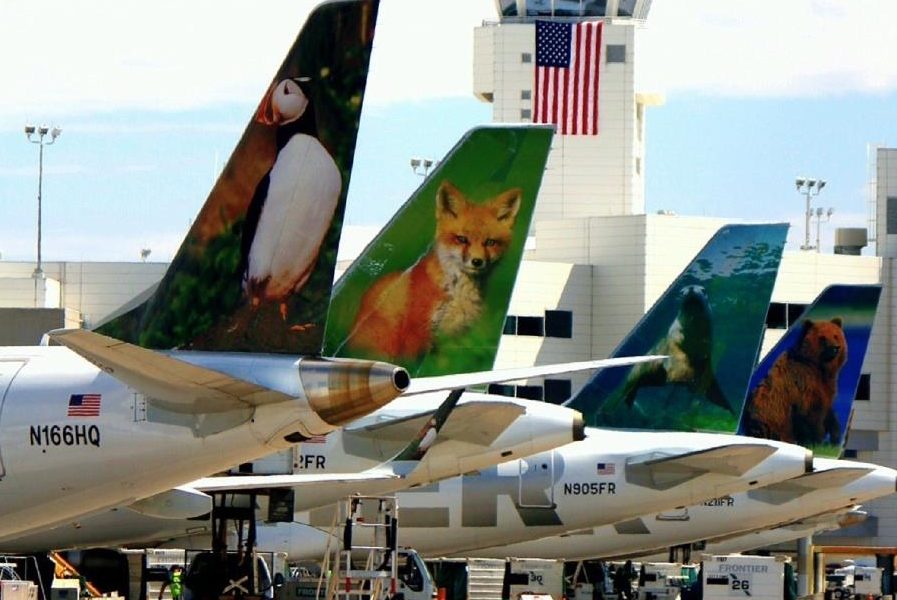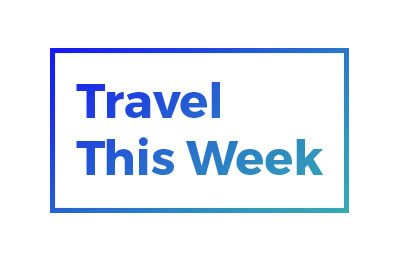Skift Take
It will be interesting to see whether American and United can continue discounting to the degree they've been doing now that Hurricane Harvey has added vigor to already-rising fuel prices. With the likes of little Norwegian Air bringing its low fares across the Atlantic, this promises to likewise raise blood pressure levels in legacy airline boardrooms.
We apologize for not predicting in these pages last week that the longtime CEO of Expedia Inc. would secretly answer job interview questions at Uber the previous weekend, leave $200 million in stock options on the table, and pose for selfies with Arianna Huffington and Uber founder Travis Kalanick as the ride-sharing company’s new chief executive by Wednesday.
Sorry, that wasn’t in our forecasting bag of tricks. But we will be analyzing the developments on Thursday in a Skift call if you want to join us.
After a week of nonstop news like that, we admit we don’t precisely know how everything this week will turn out. The way things are going, perhaps the Priceline Group CEO will take over the corner office suite at Airbnb, and maybe Alibaba will buy TripAdvisor. You never know.
As major airlines try to get their flight schedules through Houston back on track following Hurricane Harvey, and gas prices spike because refineries got swamped, we’ll take a look at other stuff going on this week. As always, you can view all of our Travel This Week posts here.
Will the Cheap Fares Last?
Many of the most influential U.S. airlines will present Wednesday at Cowen’s 10th Annual Global Transportation Conference. Look for most executives to talk about the fare environment — or specifically what they’re doing to try to thwart discount carriers like Frontier and Spirit airlines from growing successfully.
In recent weeks, we’ve seen major airlines discount considerably in off-peak periods, even, in some cases, on close-in fares. United Airlines has been selling Chicago-New York fares for as low as $45. Yes, those are Basic Economy fares so they’re heavily restricted, and business travelers avoid them. But they’re still cheap. (United even told Bloomberg recently it was selling seats on some routes for as low as $20 one way.)
Investment analysts generally know why airlines are discounting. It’s a competitive business, and all airlines want to maintain their share. And at least two carriers — American Airlines and United — are better-positioned than they were this time last year, when neither had a Basic Economy product to sell.
But expect to see some questions about how long all these cheap fares will last. Some analysts have wondered whether it’s time for all airlines to raise fares a little bit.
“We believe that even though Spirit is largely responsible for setting the pricing floor in the industry (along with other ultra low cost carriers), that floor itself could be moved higher without meaningful customer share attrition,” Jamie Baker, of J.P. Morgan, wrote in a recent report.
Airlines schedule to participate include American, United, Delta, Southwest and Alaska.
The carriers might also be able to share a rough estimate of how much money Hurricane Harvey has cost them. United, with a major hub at Houston Intercontinental, will be most affected, while Southwest,with its its large operation at Houston Hobby, will also take a hit.
Asked on August 26, whether he’s concerned about the fallout, United President Scott Kirby said the airline was more concerned with its people than its finances. “The financial impact is going to be what it is,” he said. Brian Sumers
Pressure on Jet Fuel Prices
Airline executives at the Cowen conference and elsewhere will be addressing how Harvey disrupted the work at jet fuel refineries in the U.S. South. On Thursday, Colonial Pipeline, a key pipeline for carrying jet fuel and other petroleum products from a Gulf Coast refining hub to the East Coast, shut down due to the aftereffects of the storm.
Jet fuel prices — along with gasoline prices at the pump for Labor Day weekend — surged. Jet fuel prices were up 41 percent since June 21, according to Bloomberg.
Airlines are likely to pass much of that cost spike along to passengers in the form of higher ticket prices. Most airlines do use financial instruments called hedges to ensure against sudden spikes. But there is a limit to how well so-called fuel swaps tied to either jet fuel or crude oil prices can cover surprise disasters like Harvey. Sean O’Neill
Just in Time for Hydrogen Bomb Testing
The U.S. ban on citizen travel to North Korea kicked in September 1 — a couple of days before the Democratic People’s Republic of Korea announced it had tested a hydrogen bomb. Adventure travel indeed has its limits.
Summer Visa Work Program Could Be Axed
We undoubtably will hear word this week on whether the Trump administration is gutting the Deferred Action for Childhood Arrivals (DACA) program for immigrant children born in the United States, but some observers likewise expect to soon learn more, possibly this week, where the White House will eliminate the J-1 visa Summer Work Travel program.
The program has been on the chopping block since earlier this year, and if eliminated would have a big impact on many travel brands that use seasonal employees. Daniel Peltier
Kayak Consults as Some momondo Workers Start Packing
Kayak, which acquired Momondo in July, began a formal two-week redundancy consultation process with 47 Momondo and Cheapflights employees whose jobs are in jeopardy because of the synergies that come with such deals. The process is required in the UK following major transaction like this.
In theory, some of the employees could retain their jobs if Kayak can find appropriate positions for them elsewhere in the organization. We — and they — are not very hopeful, though, and the vast majority likely will soon be out of work. It goes without saying that we feel the pain of these longtime employees. To articulate our feelings further would indeed be redundant.
The Daily Newsletter
Our daily coverage of the global travel industry. Written by editors and analysts from across Skift’s brands.
Have a confidential tip for Skift? Get in touch
Tags: basic economy, kayak, lccs, north korea, ttw
Photo credit: The Big Three U.S. airlines have been heavily discounting to thwart the rise of Spirit and Frontier airlines. Pictured are Frontier planes on September 11, 2012. Frontier

